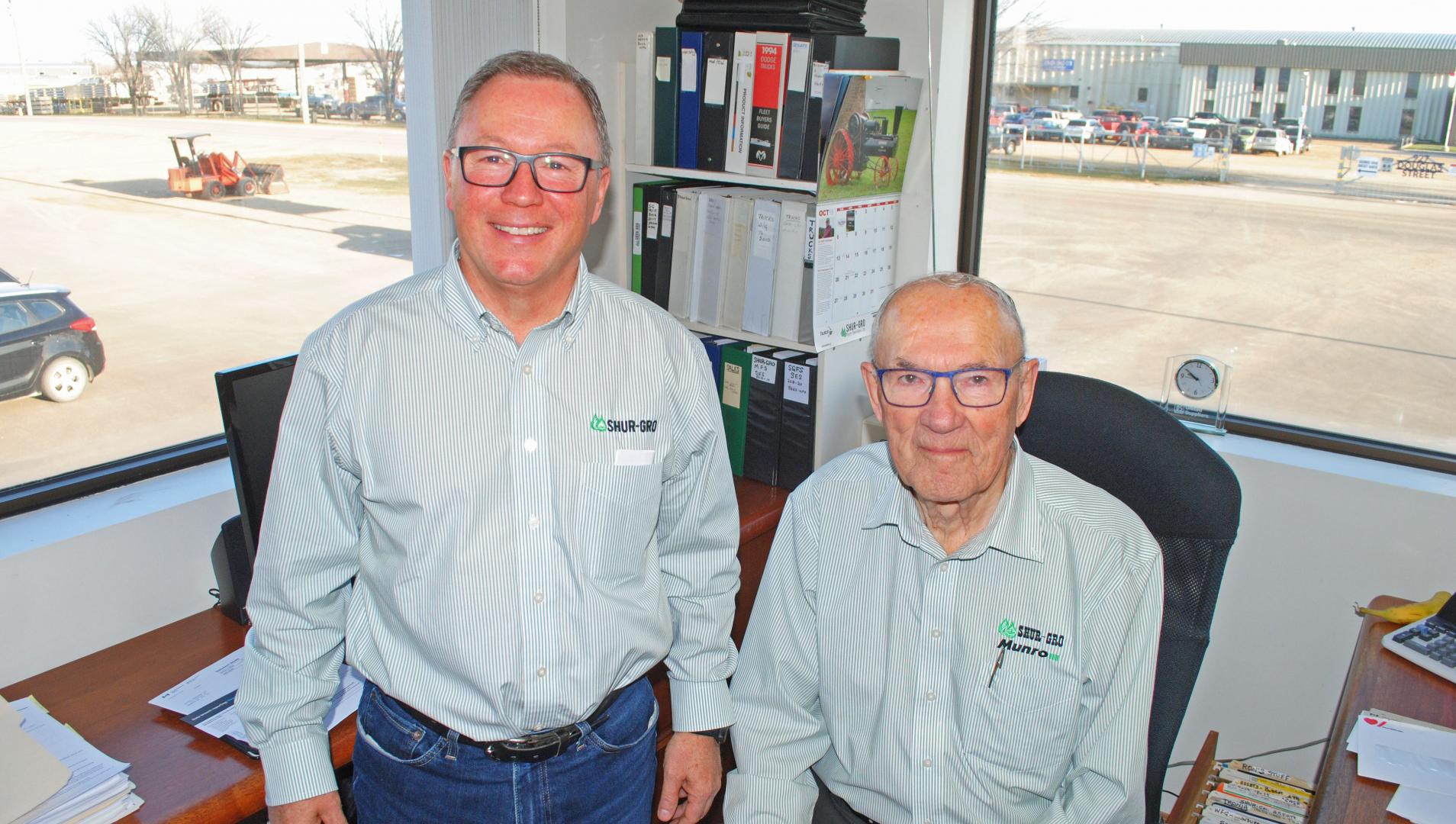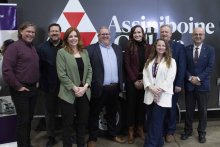Ongoing education, attitude keys to success in ag careers
December 1, 2019
After graduation from Assiniboine’s Agribusiness program in the spring of 2018, Kaitlyn Davey was among the 91 per cent to find a job within months.
The 20-year-old secured a sales agronomist position straight out of college, with Shur-Gro Farm Services hiring her at their Neepawa location after getting her foot in the door as a summer student.
As she neared graduation, Davey said that she wasn’t too concerned about finding a job, with an ongoing skilled labour shortage in the agriculture industry and Assiniboine’s reputation to her benefit.
Finding employment close to any one specific small town — in her case, her native Westbourne — might prove more difficult, but “if you want to move away there are piles of jobs out there,” said Davey.
Now on the job for a few months, she said that the learning has been ongoing since graduation.
“No matter how much school teaches you, it’s nothing like on the job learning,” she said. “It just kept going up and up, and it will until I die, pretty much.”
Lifelong learning accompanies anyone working in agriculture, said Shur-Gro Farm Services sales manager Blaine Cochrane.
Given the reality of ongoing skilled labour shortages, he added that the key things he looks for in prospective employees isn’t necessarily their degree or diploma, but rather their attitude and willingness to learn.
“Attitude is number one,” Cochrane said. “You can teach them all the other stuff.”
While attitude reigns supreme, post-secondary education is still incredibly useful, he said. When an applicant comes in with a credential it showcases their willingness to learn and has set them up with a base of knowledge in the field they’re seeking to find employment in.
Shur-Gro president and founder Ron Helwer said that earning a diploma or degree is just the beginning, and that learning is a lifelong thing – at least among the people they seek to hire.
“If we have a new agronomist who comes out of ACC, they’re going to come out with a diploma in Agribusiness (Land and Water Management or Geographic Information Systems), but they’re also going to spend a lot of time with our senior agronomy people learning stuff in the field,” Cochrane said.
Shur-Gro employees receive ongoing on-site training, and those who are Certified Crop Advisors have to keep up a certain number of credits each year to maintain their accreditation.
Helwer also points to various day courses and instructional sessions, hosted by the manufacturers they work with on a regular basis, as additional sources of ongoing education.
Shur-Gro employs approximately 70 people in autumn and roughly double that in the spring, with employees spread through 13 sites in southern Manitoba.
Redfern Farm Services is of a similar scale, employing approximately 150 people in various operations at 11 sites in Westman during their peak summer months.
Although founder and president Ray Redfern said that a large number of their graduates come from Assiniboine — mainly the Agribusiness program — “the market demand is bigger than the number of graduates.” His preference is to hire people with certain qualifications, but he said that in a pinch this doesn’t always happen.
“We can usually find a body to fill a direct role, but do we find someone who’s adept enough to grow our business?” he said. “It’s harder to find the person who’s a perfect fit.”
It’s not just the post-secondary experience that gives Assiniboine graduates an edge when it comes to landing a job with Redfern Farm Services, he said, but the fact that they went to school in Westman. That’s a big selling point for him.
It can be difficult to keep people in smaller communities, he said, and Assiniboine’s physical location in the heart of Westman allows local area people to attend college in Westman, which he said makes it more likely they stick around into the long term.
“They give up a bit less of their history” if they stay in Westman, he said, which allows more time for their roots to continue to grow into whatever community they call home.
Although he said that ongoing skilled labour shortages make it relatively easy for Assiniboine graduates to find employment, he added that they will still need to work hard and remain open to learning once they are employed.
Like those who do the hiring at Shur-Gro, Redfern clarified that while having a degree or diploma might help them find employment with his company, simply being educated at a post-secondary level isn’t enough for them to find sustained success.
Agriculture is always evolving, so those employed in the sector need to adapt along the way.
“You need to be ambidextrous,” he said, adding with a chuckle that he’s not even allowed on a combine anymore because they’ve become so high-tech.
Any certification should be seen as a “stepping stone toward broader requirements,” he said, adding that lifelong learning is often instilled during people’s college years.
Once you have some degree of education, you start to look at yourself and the roles you fill from the perspective of wanting to be a professional, as opposed to just some place I go every day,” Cochrane said, with peers often inspiring one another and spurring each other on to achieve greatness.
Although only a few months into her job with Shur-Gro, Davey said that those around her, both in the industry and within the company she works for, have had a similar effect on her.
“There are situations out in the field where you can’t cover them all in school,” she said. “It’s good there are so many people in the industry who can answer your questions and everything … It’s ever-changing, especially with all the technology that’s coming in these days.”




